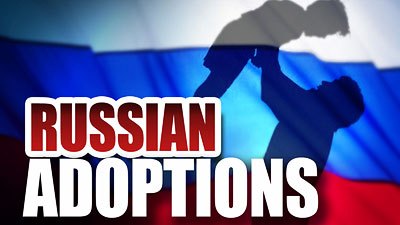Should Russia Have Sovereignty Over Its Children?
 News accounts of Russia’s ban on American adoptions almost unanimously take a contrived Cold War stance. The ban, critics say, is political, underhanded, adversarial, and retaliatory.
News accounts of Russia’s ban on American adoptions almost unanimously take a contrived Cold War stance. The ban, critics say, is political, underhanded, adversarial, and retaliatory.
Surely the Russians would disagree, so why not let Russia defend its action? Is the pro-adoption argument now just another example of political correctness that will brook neither challenge nor scrutiny? Should we forget that wealth redistribution and welfare in America also bear the mantle of altruism?
Even so, Russian president Vladimir Putin rightly calls attention to problematic migrations based upon envy and emotional logic: “You know, in the world there are probably a lot of places where the quality of life is better than here. So what, are we going to send all the children there. Maybe we should move there ourselves.” Given time, people will self-reliantly work things out on their own.
Putin also said that some foster parents in America have been abusive, citing 19 deaths since the 1990s. One mother bought a one-way ticket back to Russia for her 7-year-old adopted son because the kid had violent episodes.
The “do-gooder” logic that children are better off living in America should at least be allowed to be talked about. It’s commonplace to observe that the American family is in decline, and so is Christianity. Material comforts and entertainment have replaced heritage values and other deeply rooted traditions, some argue. Quality of life is not guaranteed by cell phones, big screen televisions, and video games. Should amusements and distractions be what life’s all about?
Don’t children have a basic human right to remain in the culture they were born into? The Korean Tobias Hubinette was adopted (without his consent) by a Swedish couple. In the article “Do Interracial Adoptions Based on Faith Selfishly Overlook Cultural Biases of Superiority?” Hubinette pleads that racial identities translate into existential well-being, unless violently torn apart. One “superior” identity group should not arbitrarily change ancient lineage and cultural patterns. Hubinette would probably argue that Sioux children should not be adopted by other races with a totally different cultural orientation.
Perhaps all nations should have sovereignty over their own children, who have no voice in the matter. Then, too, orphanages shouldn’t always be depicted as bad places by those motivated by self-interest. We can’t forget that saints and philosophers and clergy have a long tradition of valuing poverty as the preferred lifestyle. Thoreau is an example.
Then, too, can UNICEF be trusted when its funding depends on painting dark pictures? Maybe a better investment would be in programs to encourage native people and families to adopt more of their own.
 News accounts of Russia’s ban on American adoptions almost unanimously take a contrived Cold War stance. The ban, critics say, is political, underhanded, adversarial, and retaliatory.
News accounts of Russia’s ban on American adoptions almost unanimously take a contrived Cold War stance. The ban, critics say, is political, underhanded, adversarial, and retaliatory.